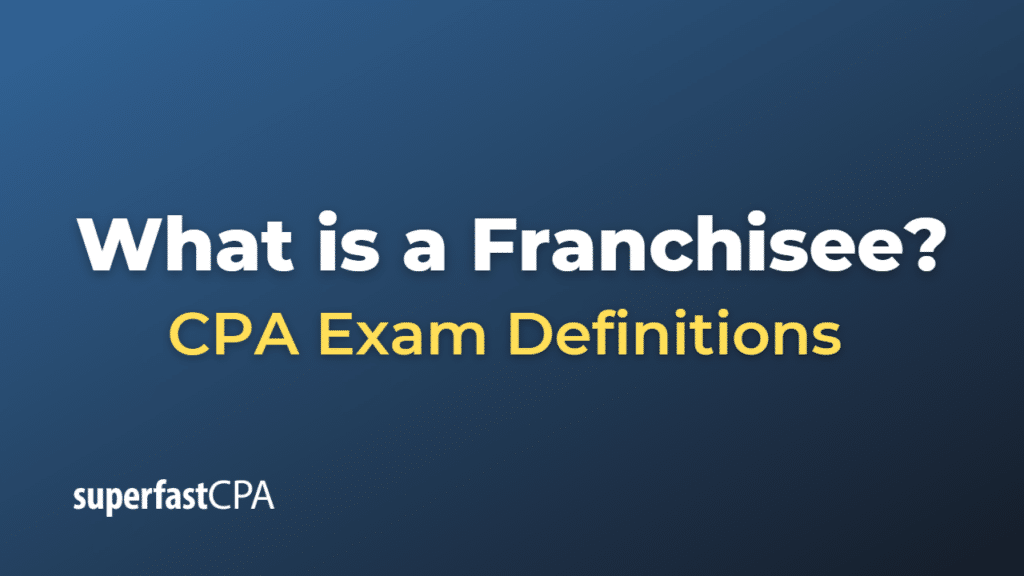Franchisee
A franchisee is an individual or company that purchases the rights to use a franchisor’s trademarked and proprietary business model, systems, and branding.
In the franchise business model, the franchisor is the company that owns and controls the rights to the business. They’ve developed the products, services, branding, and business operations that make the business successful. The franchisor then sells the rights to use these elements to franchisees who want to open their own locations of the business.
For example, if you’ve ever been to a McDonald’s, Subway, or Starbucks, you’ve been to a franchise business. The person or company who owns and operates that specific location is the franchisee. They’ve paid the franchisor (McDonald’s, Subway, Starbucks, etc.) for the right to use their business model and branding, and they follow the franchisor’s guidelines to operate their location.
Franchisees benefit from the established reputation, customer base, and proven business model of the franchisor, but they’re typically responsible for the day-to-day operations of their franchise location(s). This includes hiring and managing employees, local marketing, and ensuring that their location meets the franchisor’s standards for service and quality.
In return for the rights they’ve purchased, franchisees typically pay the franchisor an initial franchise fee and ongoing royalties, which are usually a percentage of their location’s sales. They may also contribute to a collective advertising fund used by the franchisor for brand-wide marketing efforts.
It’s worth noting that while the franchise model offers many advantages, franchisees also face risks. They have less autonomy than they would if they were running an independent business, and their success depends not only on their own efforts but also on the overall health and reputation of the franchisor’s brand.
Example of a Franchisee
let’s use the Subway restaurant chain as an example.
Suppose you’ve always wanted to own a restaurant but don’t want to start from scratch. You decide to buy a franchise of Subway because it is a well-known brand with a successful business model and wide customer base.
In this scenario, you (the individual or the company you own) would be the franchisee. You would pay an initial franchise fee to Subway (the franchisor) for the rights to open your own Subway restaurant using their brand name, recipes, and business operations.
On top of the initial franchise fee, you would also need to invest in the location, equipment, and other start-up costs necessary to open your restaurant.
Once your Subway restaurant is up and running, you would pay ongoing royalties to Subway, usually a percentage of your restaurant’s sales. This is part of your franchise agreement, which also outlines how you are to run the restaurant to maintain brand standards and quality.
As a Subway franchisee, you would benefit from Subway’s established brand, their operating systems, and their marketing campaigns. However, you would also be responsible for the daily operations of your restaurant. This includes hiring employees, purchasing inventory, local marketing efforts, and ensuring the quality of your food and service meets Subway’s standards.
Should you decide to open more Subway locations, you would become a multi-unit franchisee, but each new location would likely require a new franchise agreement and fees.
Remember, this is a simplified example. In real-world scenarios, there are often many more complexities, including local and national regulations, complex accounting procedures, and detailed contractual obligations.












